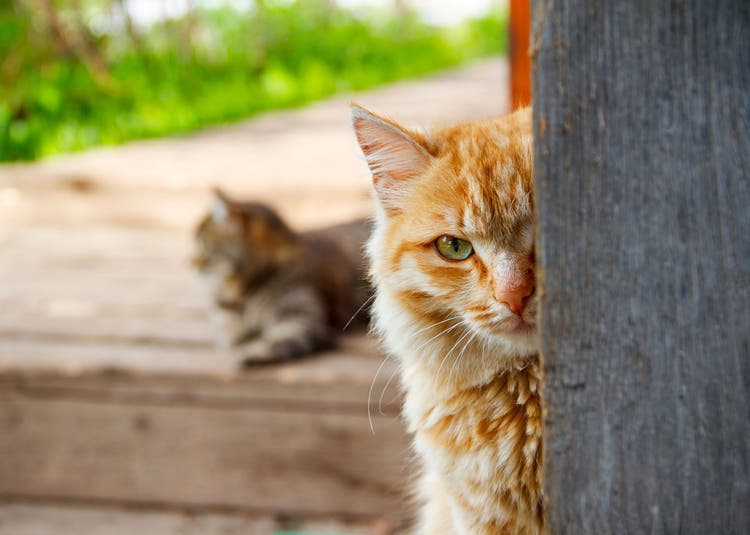
Aging Pets: How to Handle Changes in Cat Behavior
Owners of senior cats often notice a change in cat behavior but they simply chalk it up to getting older. Failure to use the litter box, a change in activity levels, and changes in eating, drinking or sleeping can definitely be attributed to old age… but is there something else going on? It would be a mistake to simply attribute these changes to aging without first investigating the possibility of an underlying medical condition. Always see your veterinarian if you have any concerns about your older cat.
Changes in Senior Cat Behavior: What to Look For?
As your cat ages, you should be aware of any changes in behavior, mood or activity. Just like people, older cats become less mentally and physically active. This can be attributed to aging changes that take place in the brain as well as physical factors such as joint stiffness. A change in cat behavior could be a signal that something else is going on.
You may notice your older cat sleeping more than usual. Cats will usually sleep between 16 to 18 hours per day. If your cat is 10 years of age or older, he may sleep between 18 to 21 hours per day. It is natural for your cat to sleep more as he ages.
As your cat ages, bending and moving may become more difficult. This can be related to arthritis or another condition. To learn more about arthritis in cats, go to Arthritis in Cats: Does Your Cat Have Arthritis?
Your cat may have more difficulty jumping up to places that he likes to go, like the bed or his favorite window sill. When this happens you should provide a ramp or a set of kitty stairs so your cat can continue to do the things that make him happy.
Keeping Your Senior Cat Active and Happy
In spite of mobility problems, it is important that your senior cat continues to exercise. To keep your cat interested in play, continue engaging in interactive play sessions. Just reduce the length of time your cat exercises and increase the frequency of your play sessions. For example, if you played twice a day for 20 minutes at a time, play four times a day for 5 or 10 minutes at a time. If your senior cat does not see as well, roll a ball with a bell for him to chase. If your cat enjoys catnip, leave a catnip toy out for him to play with as he wishes.
In most cases, cats can be considered senior when they are between seven and ten years old.
If moving becomes painful, your cat may wash himself less often. It will be up to you to offer more grooming assistance as your cat ages to help him maintain a clean, soft coat. With age, your cat may be less able to cough up hairballs, so regular brushing will help keep them from forming. If your older cat resists being combed or brushed, use a soft-bristled brush or a grooming glove. Pet wipes will help you to keep his coat clean. If your senior cat uses his scratching post less often, you will need to clip his nails to keep them from becoming ingrown. To learn more about grooming your senior cat, go to Grooming Your Senior Cat – Special Concerns.
A normal change in cat behavior with older cats may be that they do not want to be picked up as often. This could be because he is experiencing joint pain or his muscles are stiff. On the other hand, some senior cats become more clingy with age, wanting to be with their human every second of the day or night. All cats are different. Take your cue from your cat and give them the comfort and security they need.
Senior Cat: Litter Box Issues
Age-related problems may make your cat avoid the litter box. Mobility issues may make it difficult for your cat to navigate stairs in order to access his litter box, and he may have problems climbing into the box. To help prevent these litter box issues, make the litter box more accessible to your kitty. Put the box in a location where your cat will not have to climb or descend stairs to get to it. Also, find a litter box with lower sides to make it easier to access. Age-related illnesses like diabetes or kidney problems may cause your cat to urinate more often. That means you will have to clean the box more often to keep it clean and appealing. For more information about litter box avoidance, check out The Top 8 Reasons Why Your Kitty Won’t Use the Litter Box.
Your senior cat will not be the same active kitty she once was. She will want to sleep more. She may not want to interact with other household pets and her relationship with you may change as well. It is important that you recognize her unique needs and meet them whenever possible. To learn more about changes in cat behavior, check out Living with a Senior Cat.